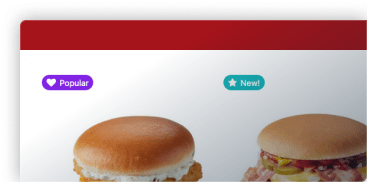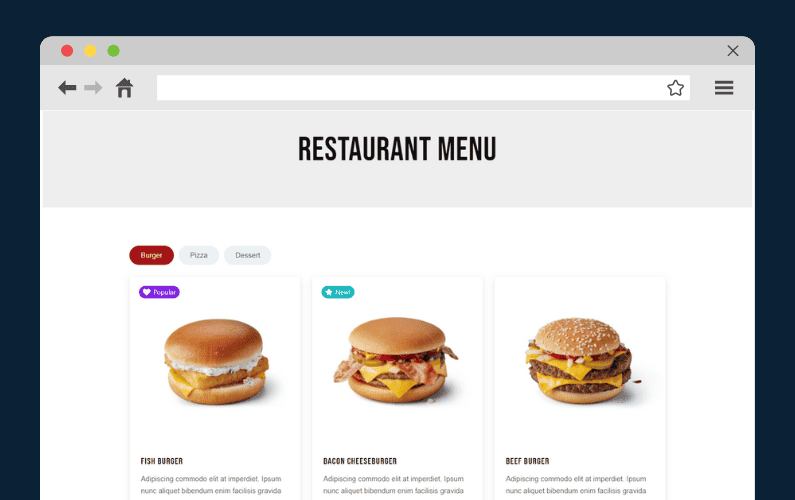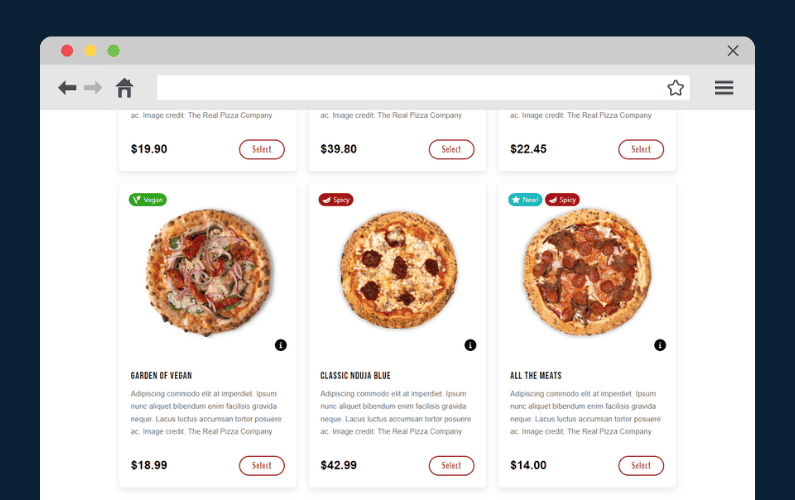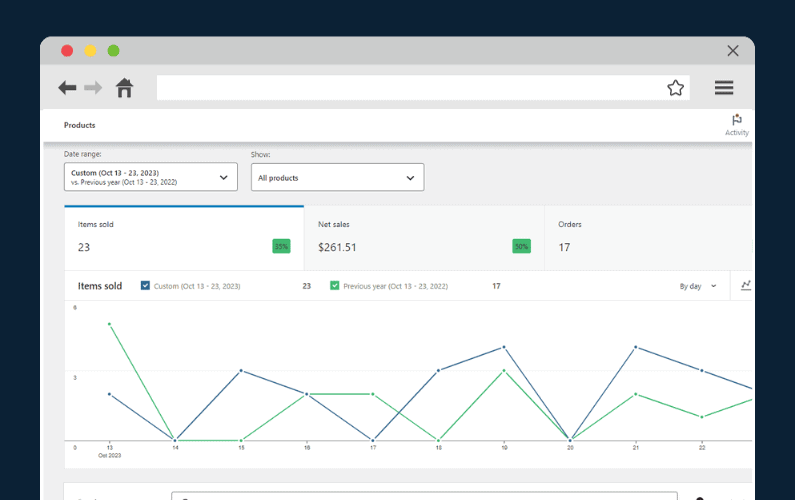
If you’re looking to improve and manage your restaurant reputation management this year, this article is here to help.
In this guide for restaurant reputation management, we’ll answer the following:
- What restaurant reputation management is (if you’re new to this concept).
- What are the best practices to manage your restaurant’s reputation (with examples)?
- What the role of your website is when it comes to your restaurant’s reputation?

With such a competitive food scene, having a restaurant reputation management system will give you the extra edge.
Customers are more likely to search online for the best dining options, and they certainly look at restaurant reviews. This is why a restaurant’s reputation is its golden ticket to the top of the rankings.
Let’s pull back the curtain on restaurant reputation management and understand what it’s all about and why you should prioritize it.
Get Your Restaurant Online With Orderable
The WooCommerce plugin designed to help restaurants take orders online – with no added fees!
What is restaurant reputation management?
Restaurant reputation management is the practice of monitoring and influencing how your restaurant is perceived. This includes your online presence and in-house.
Word-of-mouth usually isn’t enough to create a positive reputation anymore. Your reputation ranges from online reviews, to social media, customer service, and more.
Putting in the effort to improve your online presence will automatically impact your online reputation (in a good way!).
So let’s take a look at some of the things that can be included in restaurant reputation management.
The building blocks of reputation management
Before a customer decides to try out your restaurant or make a repeat visit, they’ll likely research it online. They’ll look at your menu, and read your customer reviews and online ratings.
Essentially, your restaurant’s online reputation can significantly influence customers’ dining decisions.
A customer decides where to eat based on the following things:
- Positive online reviews.
- Social media mentions.
- High ratings on review sites.
📈 Customers will spend 31% more on a business with excellent reviews.
Of course, it’s not enough to have a few 5-star reviews or star ratings on Zomato, for example. That’s not what builds a reputation, but it’s the beginning of a reputation management strategy.
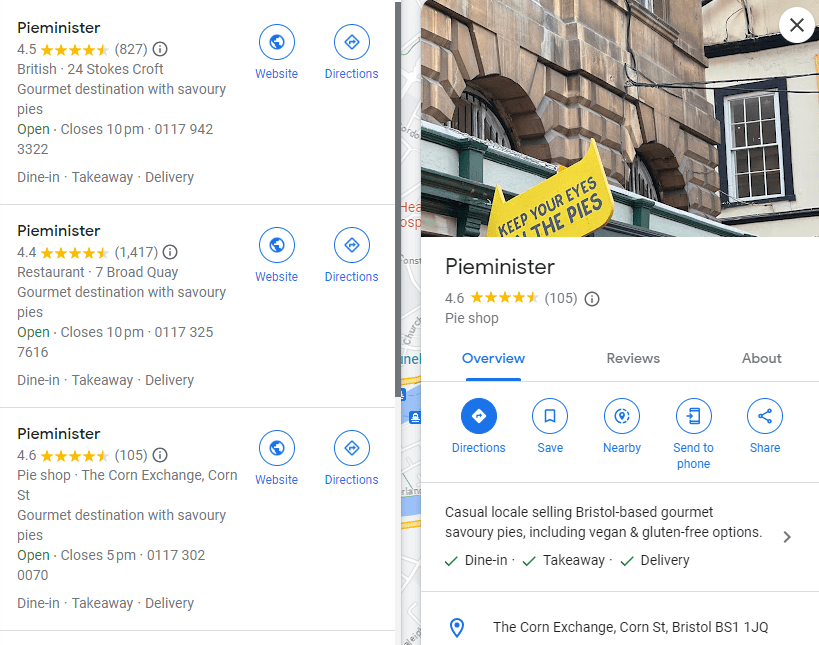
So let’s go into detail, here are the key parts of restaurant reputation management:
- Online reviews: This means looking up your reviews on platforms like Google, Yelp, TripAdvisor, or your website. Having positive reviews can attract new customers. Replying to negative ones can show your commitment to customer satisfaction. Studies also show that reviews produce an average of 18% uplift in sales.
- Social media presence: How you respond on social media platforms helps promote your restaurant. It lets you talk with your customers and show your brand’s personality.
- Customer service: This covers on-site service (how your staff interacts with customers at the restaurant) and off-site service (how you interact with customers online, over the phone, etc.). Excellent customer service can lead to glowing restaurant reviews and repeat business.
- Food and service quality: As a restaurant owner, food and service delivery quality greatly shapes your reputation. Consistency in these areas is important to the overall dining experience.
So now we know what’s involved in good restaurant reputation management, let’s take a look at the benefits of improving it.
The benefits of good restaurant reputation management
Focusing on reputation management brings a host of benefits, such as:
- Positive customer experiences.
- When a restaurant actively manages its reputation, it focuses on monitoring feedback and improving service, leading to enhanced customer satisfaction. Positive experiences are likely to be shared, both through word-of-mouth and online reviews, attracting more customers who are eager for a similar experience.
- Fewer negative perceptions.
- Effective reputation management involves promptly addressing negative feedback and working to resolve any issues. This proactive approach not only often converts dissatisfied customers into satisfied ones but also shows potential customers that the restaurant is committed to excellence and values customer feedback. Reducing the overall negative perceptions in the community.
- Increased brand visibility.
- A positive online presence, bolstered by good reviews and active social media engagement, increases a restaurant’s visibility. People are more likely to discover and choose restaurants with a strong, positive online presence. Making it easier for new customers to find and select your establishment over competitors.
- More customer loyalty.
- Customers who have consistently positive interactions with a restaurant, both online and in person, are more likely to become repeat customers. This loyalty is priceless, as loyal customers not only provide steady revenue but can also become advocates for the restaurant, recommending it to friends and family.
- Revenue growth.
- All these benefits naturally lead to revenue growth. Satisfied customers tend to spend more and visit more often. This cycle of positive reputation management and revenue growth reinforces itself, leading to long-term success for the restaurant.
So now we know what restaurant reputation management covers, and the benefits of effective restaurant reputation management. Next, let’s look at some best practices to put these in play.
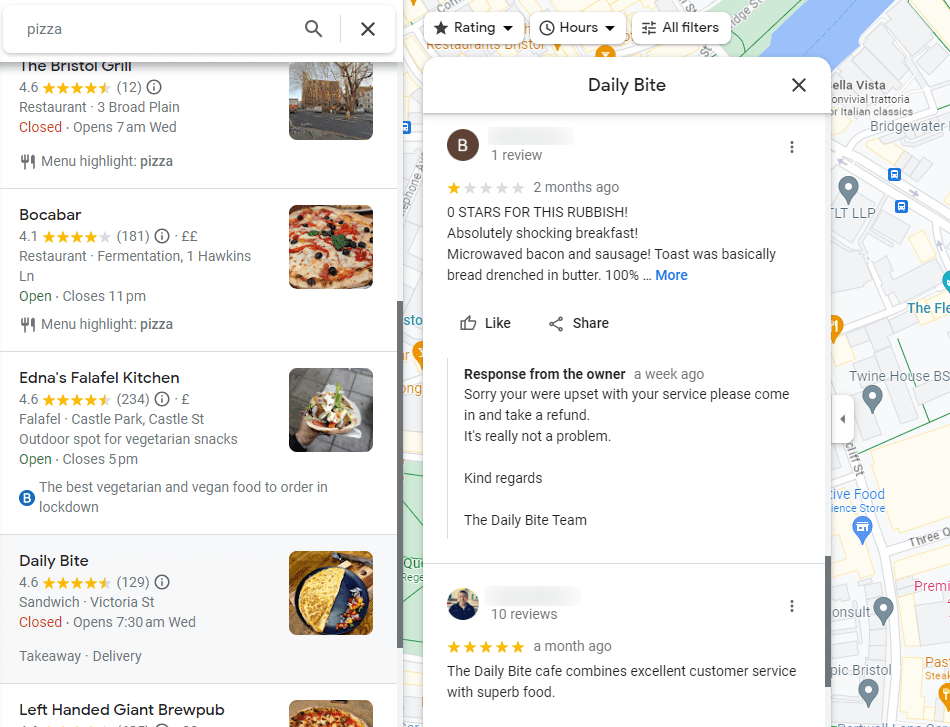
Restaurant reputation management best practices (with examples)
This section will outline some valuable insights and best practices for restaurant reputation management. It will give you some inspiration for your restaurant business.
Don’t leave it up to chance; these examples show that being proactive is the best way to improve your online reputation.
Claim your online presence
To claim your online presence means registering your restaurant on popular review sites. It also means maintaining a strong, active presence on social media platforms.
Let’s look at this in a little more detail:
- Registering on popular review sites: Begin by claiming your restaurant’s profile on popular review websites such as Yelp, TripAdvisor, Google My Business (for Google reviews), and Zomato. These platforms are often the first places potential customers go to learn about your restaurant, read reviews, and decide whether to visit. By claiming your profiles, you can ensure that the information about your restaurant is accurate and up-to-date. Including your address, hours of operation, menu, and photos of your dishes and dining space.
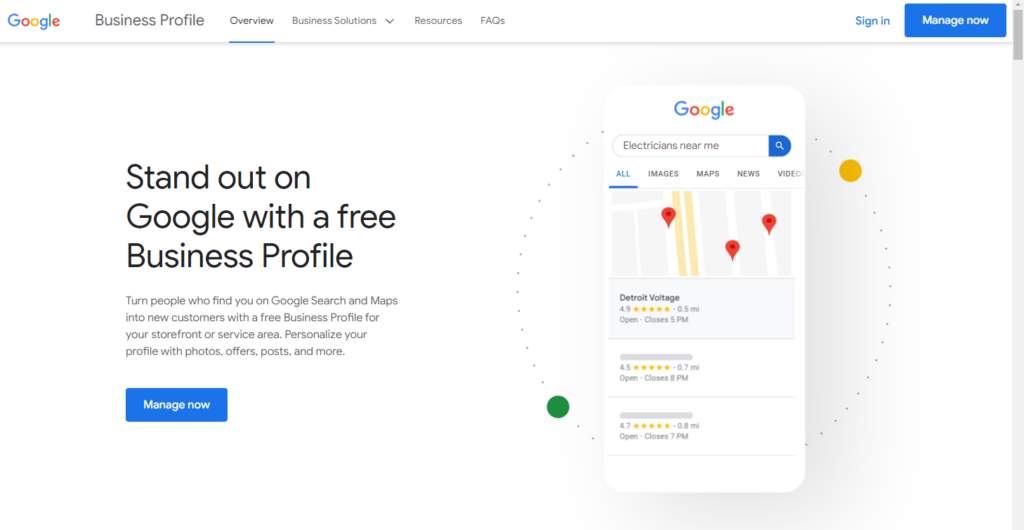
- Maintaining an active presence on Social Media accounts: Social media is a powerful tool for building relationships with your customers and promoting your restaurant’s unique personality and offerings. Social media platforms like Instagram, Facebook, Twitter, and TikTok offer different ways to engage with your audience. Each platform works well for different types of social media posts. For example, Instagram is perfect for sharing high-quality photos of your dishes, or behind-the-scenes looks at your kitchen. Facebook can be used for sharing updates, menu changes, or promoting events, while Twitter is great for quick, real-time interactions with customers.
Just like Starbucks, which is known for its creative and engaging social media campaigns, your restaurant can also use these platforms to launch promotions, share interesting content, and engage in conversations with customers.
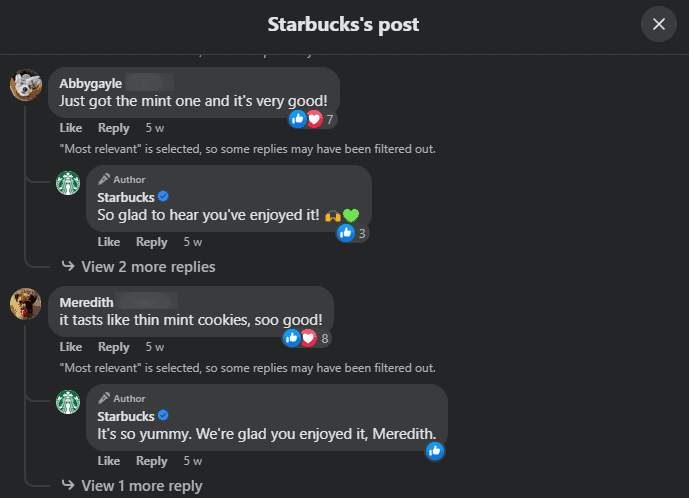
Monitor and respond to reviews
Follow up with both positive and negative reviews. By doing so, you show customers you value their feedback.
Let’s look at this in a little more detail:
- Acknowledge positive reviews: When a customer takes the time to leave a positive review, acknowledging their effort with a thank you message can make them feel appreciated and valued. This also encourages others to share their own positive experiences. Personalize your response by mentioning specific aspects they enjoyed, reinforcing the positive aspects of your restaurant’s dining experience.
- Address negative reviews: Negative reviews offer a chance to show your commitment to customer service. Respond promptly and professionally, expressing regret that their experience did not meet their expectations and offering to make it right. This might involve inviting them to discuss the matter privately so you can take steps to resolve any issues. A well-handled bad review can often turn a dissatisfied customer into a loyal one and shows potential customers that you’re committed to quality.
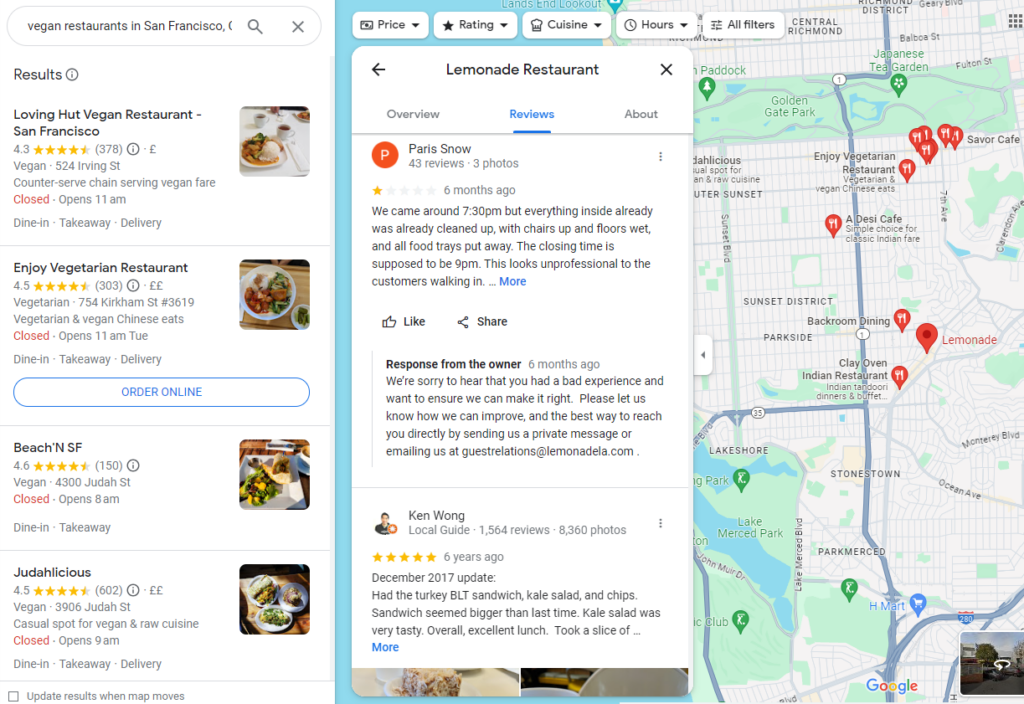
- Use reputation management software tools: To streamline this process, reputation management software can save a lot of time. These tools can alert you when new reviews are posted, allowing for timely responses. They also help in aggregating feedback across multiple platforms, making it easier to monitor your online reputation. Tools like ReviewTrackers, Podium, or Google Alerts can save time and ensure you don’t miss any feedback that could impact your business.
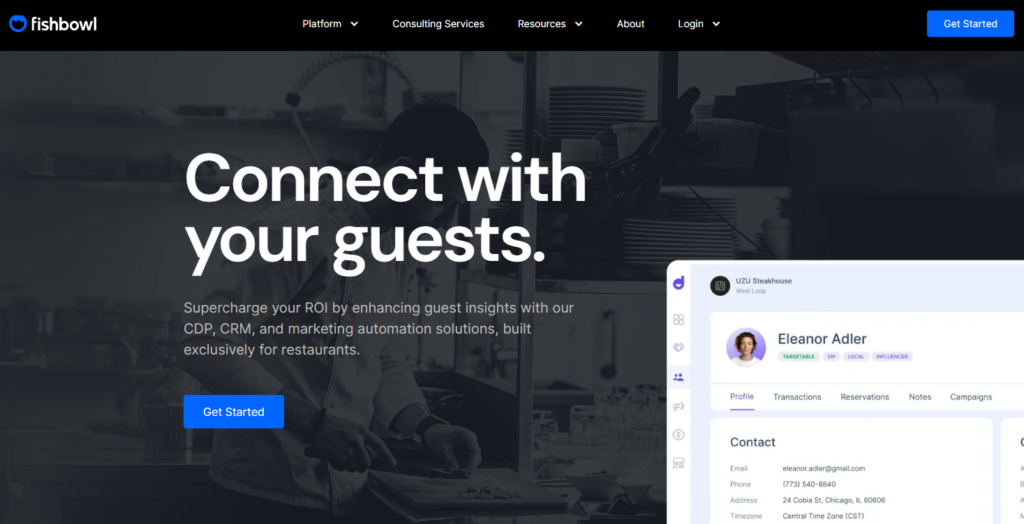
The restaurant The Capital Grille provides an excellent example of review responses on TripAdvisor. This shows their commitment to customer satisfaction.
Promote positive reviews
Promoting positive reviews is a proactive strategy in reputation management. It can be used as a marketing campaign that leverages the power of satisfied customers’ testimonials to attract new patrons.
Let’s go into this in a little more detail:
- Encourage customers to share their experiences: Create a culture that encourages customers to share their dining experiences online. This can be done through subtle prompts at the end of their meal, signs at the restaurant, or through follow-up emails thanking them for their visit and inviting them to review their experience. Training staff to remind customers to leave a review if they enjoyed their service can also be effective.
- Promote positive reviews on your website and social media: Once you have positive reviews, don’t keep them hidden. Showcase them on your website, perhaps on a dedicated “Testimonials” page or a highlighted section on your homepage. Share these reviews on your social media platforms as well. This not only spreads positive word-of-mouth but also builds social proof, showing potential customers the quality of the dining experience your restaurant offers. We’ll talk a little more about this later.
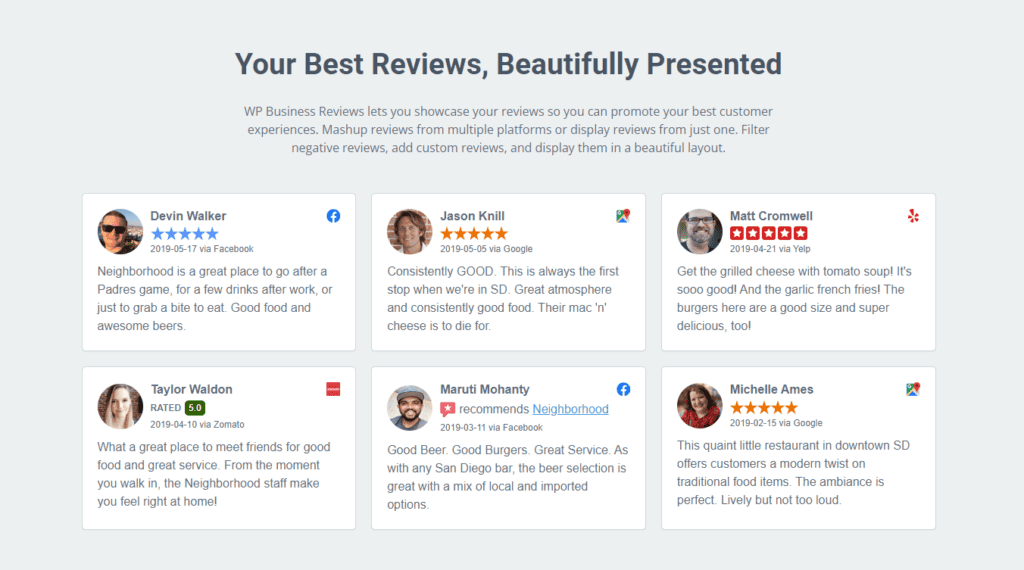
- Create incentives for sharing reviews: While incentivizing reviews should be approached with caution to ensure authenticity, offering a small token of appreciation for customers who choose to share their experience can be effective. This could be in the form of a discount on their next visit, a free appetizer, or entry into a contest. It’s important to emphasize that you’re seeking honest feedback to maintain the integrity of the reviews.
Dominique Ansel Bakery’s approach to using the Cronut’s positive reviews for promotion is a prime example of how a single dish or unique aspect of your restaurant can become a cornerstone of your marketing strategy. They shared customer testimonials across various platforms, which not only highlighted the product’s popularity but also contributed significantly to the bakery’s overall reputation.

Maintain high-quality standards
Consistently high-quality food and service are the best reputation management strategies. This approach ensures that customers have consistently positive experiences, leading to favorable reviews and word-of-mouth recommendations.
Let’s go into this in a little more detail:
- Focus on consistent quality in food: Use high-quality ingredients and ensure that every dish that leaves the kitchen meets your restaurant’s standards. Regularly train your kitchen staff and conduct quality checks to maintain consistency. This commitment to quality should extend to every aspect of the dining experience, from the presentation of the food to its taste.
- Provide exceptional service: Train your staff to provide excellent service that meets and exceeds the expectations of your diners. This includes everything from greeting customers warmly when they enter to providing knowledgeable recommendations about the menu, and ensuring that their dining experience is pleasant throughout their visit. Staff should also be trained to handle any customer complaints professionally and promptly.
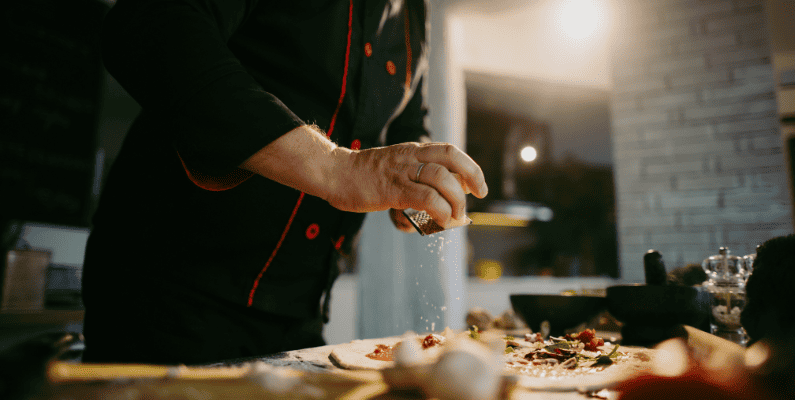
- Invest in staff training and development: Regular training sessions for both new and existing staff can ensure everyone is on the same page regarding the quality of food and service expected. Encourage a culture of excellence where staff members feel valued and understand their role in the restaurant’s reputation.
- Monitor and adjust: Keep an eye on customer reviews and feedback to monitor how your efforts in maintaining high standards are being perceived. Be willing to make adjustments as necessary to ensure that your restaurant continues to meet and exceed customer expectations.
The Michelin-starred restaurant Eleven Madison Park is renowned for its exceptional food and impeccable service, often praised in customer reviews, reinforcing its reputation.
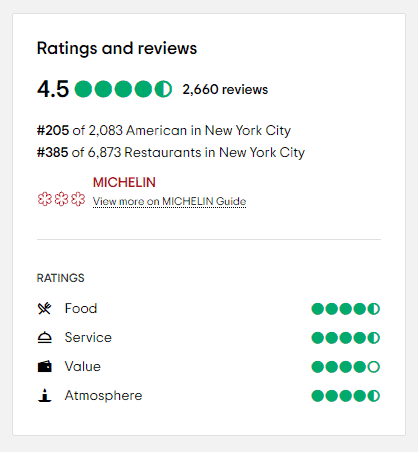
As you can see, these are all manageable activities to implement and keep track of. Not only will they increase your foot traffic, but you’ll also get real-time information on how customers experience your restaurant.
In the next section, we’ll explore how your website can affect your restaurant’s presence in a search engine.
The role of your website in restaurant reputation management
Your website is no longer just a place to display the soup of the day. It’s now a platform to showcase your restaurant’s origin story, display your commitment to quality, and build customer trust. And the easiest way to connect and build trust with your customer is to use Orderable.
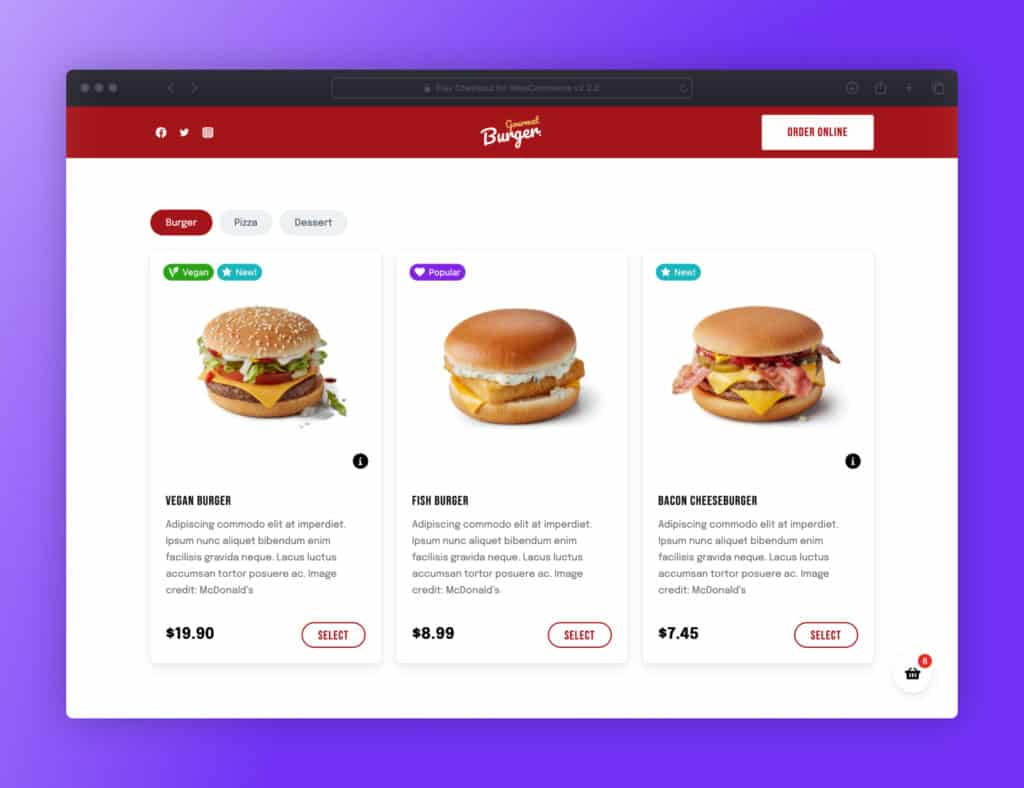
With Orderable, your website becomes the digital front door to your restaurant. Since your website is usually the first point of contact for potential customers, having a user-friendly ordering system that lets customers order easily online is super important in giving them a great customer experience.
Here are other reasons why we recommend you implement Orderable on your website.
Showcase your restaurant menu
You can entice potential customers by showing your dishes and making them appealing. Add high-quality images and descriptions of your dishes on your website to let customers see what they’re getting. The best part is that Orderable makes adding these options a breeze.
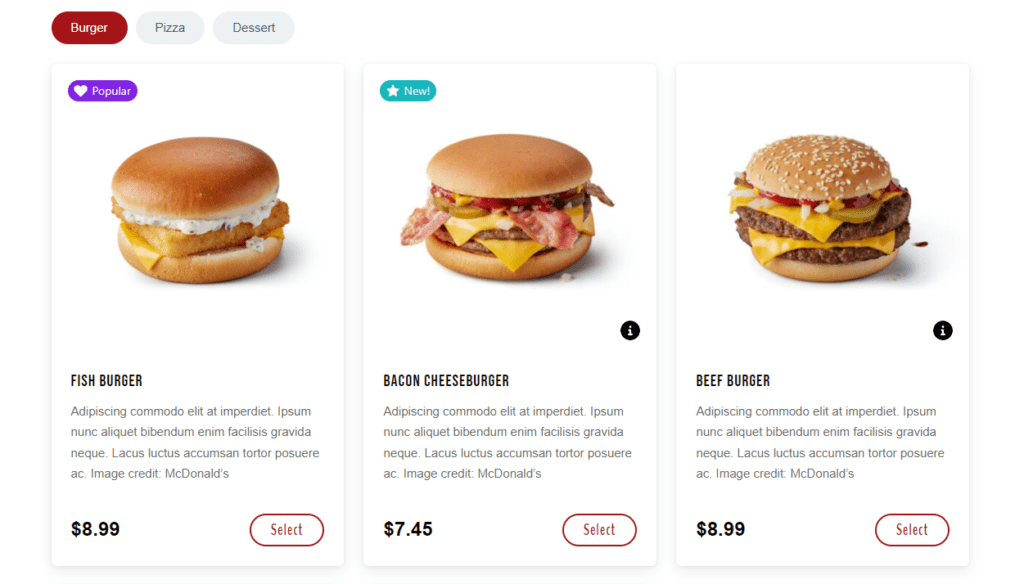
Here are some other ways Orderable can help build up your restaurant’s online reputation:
- Flexible product/menu layouts.
- Your site and menu will look great on any device (mobile-first design).
- Beautifully designed dietary and promotional product labels.
- Available order bumps for additional menu items.
- WhatsApp and SMS notifications to notify customers.
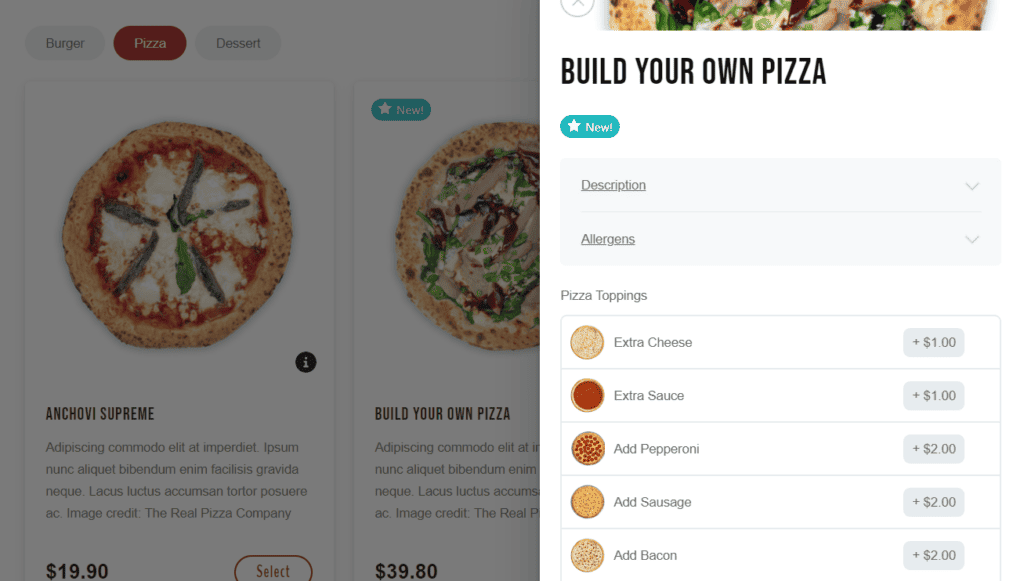
Adding these features minimizes confusion and removes doubt or disappointment over what your customers are ordering. You can also create dish customizations, so your customers can personalize their orders. These touches all add to the overall satisfaction.
While Orderable works great as a standalone plugin, we recommend using it with the WP Business Reviews plugin to maximize your potential for success. Not only will you have a great ordering system, but you’ll also be able to display your best reviews from review platforms directly on your website.
It will make ordering from your restaurant a no-brainer!
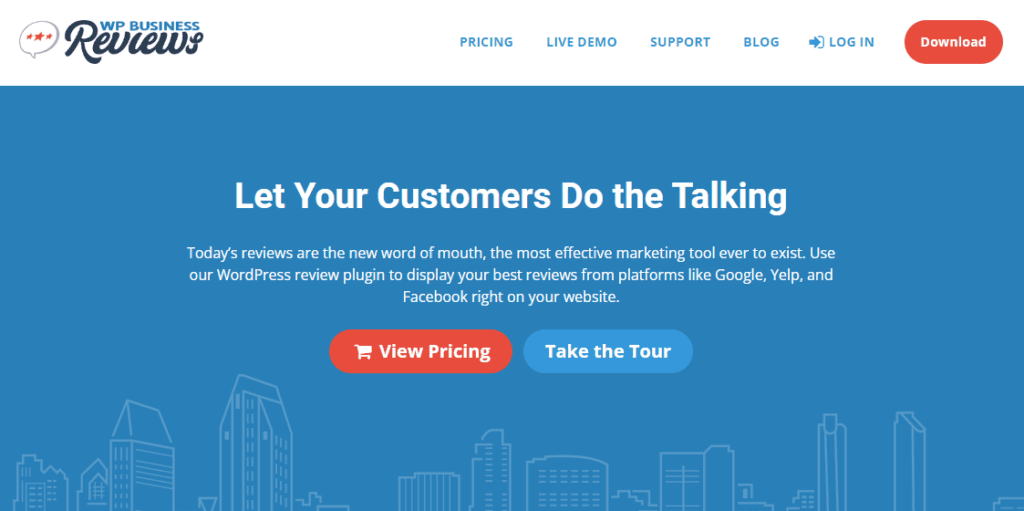
Offering multiple service options
Orderable provides delivery, curbside, and local pickup. If you have multiple locations, customers can order food from the one closest to them. You can also let the customer know when you can deliver or accept orders based on the schedule you set up in the plugin’s settings.
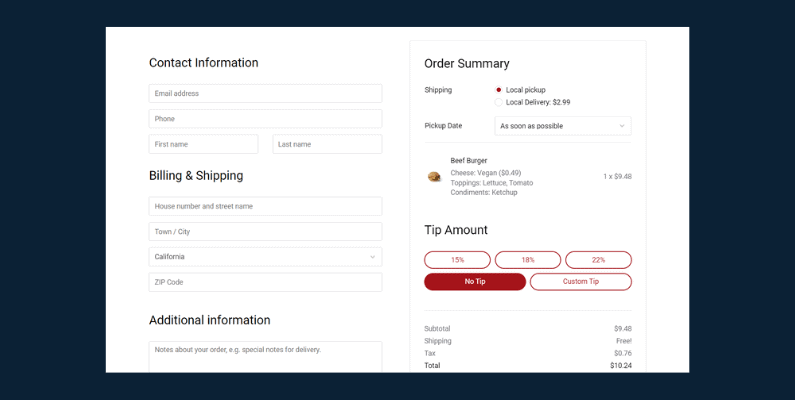
Since no customer is alike, you can cater to their uniqueness by offering them such preferences. This creates customer loyalty and, by association, increases your restaurant’s reputation. Those happy customers will likely leave you good reviews and boost your online reputation.
Leverage social proof
Social proof is the idea that people will follow the actions of others. This can be a powerful tool in your restaurant’s reputation management strategy. You can add social proof to your website with the WP Business Reviews plugin. As mentioned, it will help you gather the best reviews from various platforms like Google, Yelp, and Facebook and display them on your website.
Positive reviews from different sources help potential customers feel your restaurant’s quality and service and encourage them to order from you. This integration can be a game-changer in building your online reputation.

As you can see, a well-designed, user-friendly website powered by Orderable and enhanced by the WP Business Reviews plugin can significantly improve your restaurant’s reputation.
Improve your restaurant reputation management today
Fantastic restaurant reputation management is not just an asset; it’s a necessity. You need a strategic approach with a solid online presence leveraging your website to achieve that. That is if you want to improve your restaurant reputation management.
Remember that your website is a powerful tool to build and maintain your reputation, as it can significantly impact how potential customers see your brand. This is where Orderable can make your website shine brighter.
Orderable allows you to offer a seamless online ordering experience, featuring clear menus, dish customization, and multiple service options.
Couple it with the WP Business Reviews plugin, and you’re on your way to having solid restaurant marketing on your side. By investing in your restaurant’s online reputation management, you’re investing in its future.
So take the reins today and steer your restaurant toward success and growth in 2024 and beyond.
Don’t miss out on the latest Orderable news!
Sign up for our newsletter to receive the latest news from the blog, you’ll get pinged every week with a digest of the latest updates.

Related Articles
Create a WordPress Restaurant Menu (in 4 Steps)
How to Create an Online Ordering System for Your Small Business
8 Important Restaurant KPIs to Track in 2024
Get Your Restaurant Online With Orderable
The WooCommerce plugin designed to help restaurants take orders online – with no added fees!
View Pricing
